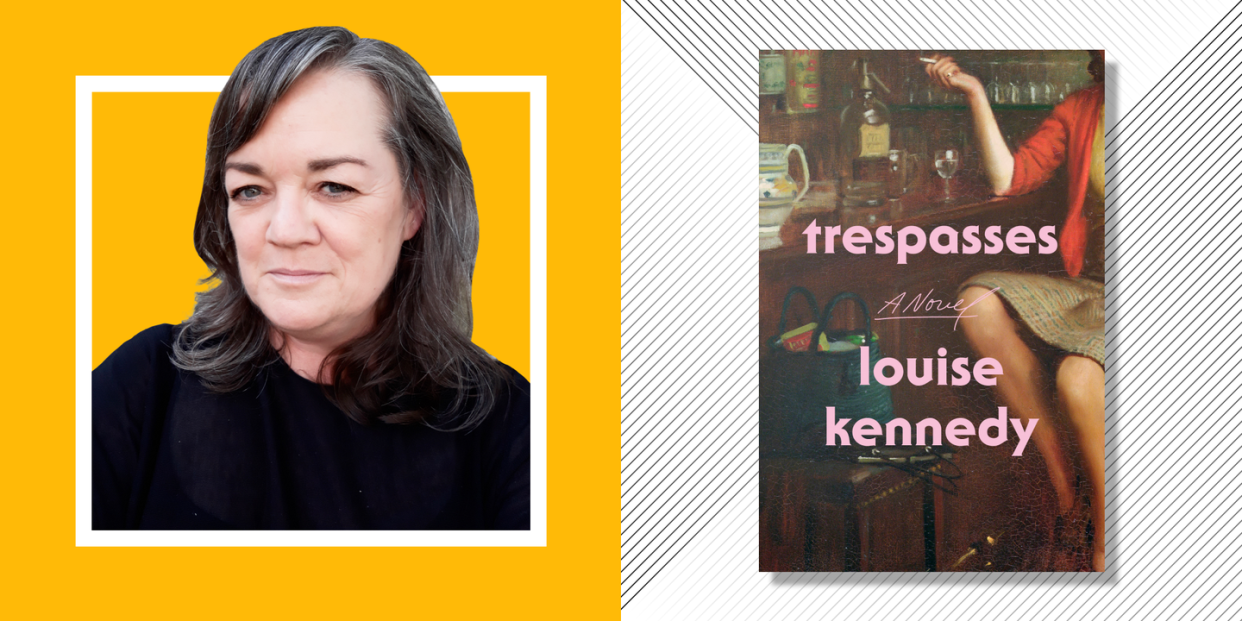Louise Kennedy Recreates the Troubles in Her Absorbing Debut, “Trespasses”

Colum McCann’s sublime novel TransAtlantic stole its plots, in part, from real-world headlines, including George Mitchell’s Herculean efforts to secure a truce among Catholics and Protestants in Northern Ireland in 1998, known as the Good Friday Agreement, the terminus of the Troubles, the decades-long conflict that pitted families and neighbors against each other. Artists across mediums have tapped that dark era as well, evidenced by the suspense-laden television series Bloodlands. The past leaves its thumbprints on us all, and on none more than an emerging generation of dazzling literary talent.
Louise Kennedy recreates the Troubles in her restrained, absorbing debut, Trespasses, set in Belfast in the mid-1970s. The fog of war, even a guerrilla war, is still a fog. Meet Cushla Lavery, an occasional Catholic and 24-year-old schoolteacher who moonlights as bartender in her family’s pub. She’s bored by the contours of her life: a devotion to Gina, her widowed, alcoholic, ball-and-chain mother; quarrels with her older brother, Eamonn, who manages the business; a numbness to reports of bloodshed and violence just beyond the relative safety of her “mixed” suburb. Enter Michael Agnew, a middle-aged, married Protestant (“Prod”) and barrister who’s defended IRA criminals in court. He talks the talk but also walks the walk, or so she believes. She feels a volt of attraction; after a brief flirtation they embark on a relationship.
Their discreet couplings fire Cushla’s imagination. He drives her to his parents’ former house, where he keeps a flat, away from the gaze of his wife and Gina. Cushla craves a deeper connection, the trappings of his upscale profession: “He mumbled something about music and crossed the room to the stereo, where he began sorting through a stack of tapes. Without the camouflage of robes and manners and whiskey he seemed vulnerable. She went to the window. It was the first time she had seen his street in the daytime. There was a magnolia tree in his front garden, gnarled branches pimpled with green buds, a single white, starry blossom on the bare bark. The houses seemed to be washed in pink light. There was bossa nova playing from the speakers, and when he came to sit at the table, he pulled her onto his knee.”
Kennedy’s prose is taut but liminal, opening up space for Cushla’s transformation, as she gives into her desire again and again (and again). Untethered from her Catholic upbringing, she can’t linger on the sidelines of political discord, a point driven home when the father of a student is brutally beaten and left for dead. The presence of British soldiers is repugnant to her, the roadblocks small but potent humiliations. She takes stock of her heritage, tutoring Michael and his affluent circle friends in the Irish language while pondering the meaning of her name, derived from an endearment, a chuisle mo chroí, “the pulse of my heart.”
Trespasses has the compression of a short story but the gait of a longer narrative. Before she turned to writing, Kennedy was a chef for almost 30 years; a sharp attention to detail imbues each chapter. She subtly shades in her supporting cast: Cushla’s colleague and platonic friend, a sinister (and possibly predatory) priest, a dazed, impoverished boy. Michael harbors secrets—he used to know the Lavery family, who don’t think highly of him, even as he patronizes their bar. There are rumors of his wife’s mental illness, how he uses her things to pursue other women. The consequences of her affair elude Cushla, who leans into moral ambiguity. She feels both a rivalry and affinity with her: “In her bedroom, she lifted the window sash. Splinters of paint tinkled onto the sill. She sat on it to smoke a cigarette. A car passed the house in a fizz of rain, disappearing around the bend toward the hills. Somewhere out that road, a woman who had once signed her name in girlish cló gaelach [Celtic script] was with a man who used her old schoolbooks to make other women want to sleep with him.”
Kennedy avoids fussy plot twists and decorative language: By going small she goes large. Her intimate drama carries the burden of a larger history. Step by step, Trespasses moves toward inevitable tragedy, but the author surprises as fate closes around Cushla. Wise far beyond its first-book status, Trespasses vaults Kennedy into the ranks of such contemporary masters as McCann, Claire Keegan, Colin Barrett, and fellow Sligo resident Kevin Barry.
You Might Also Like

